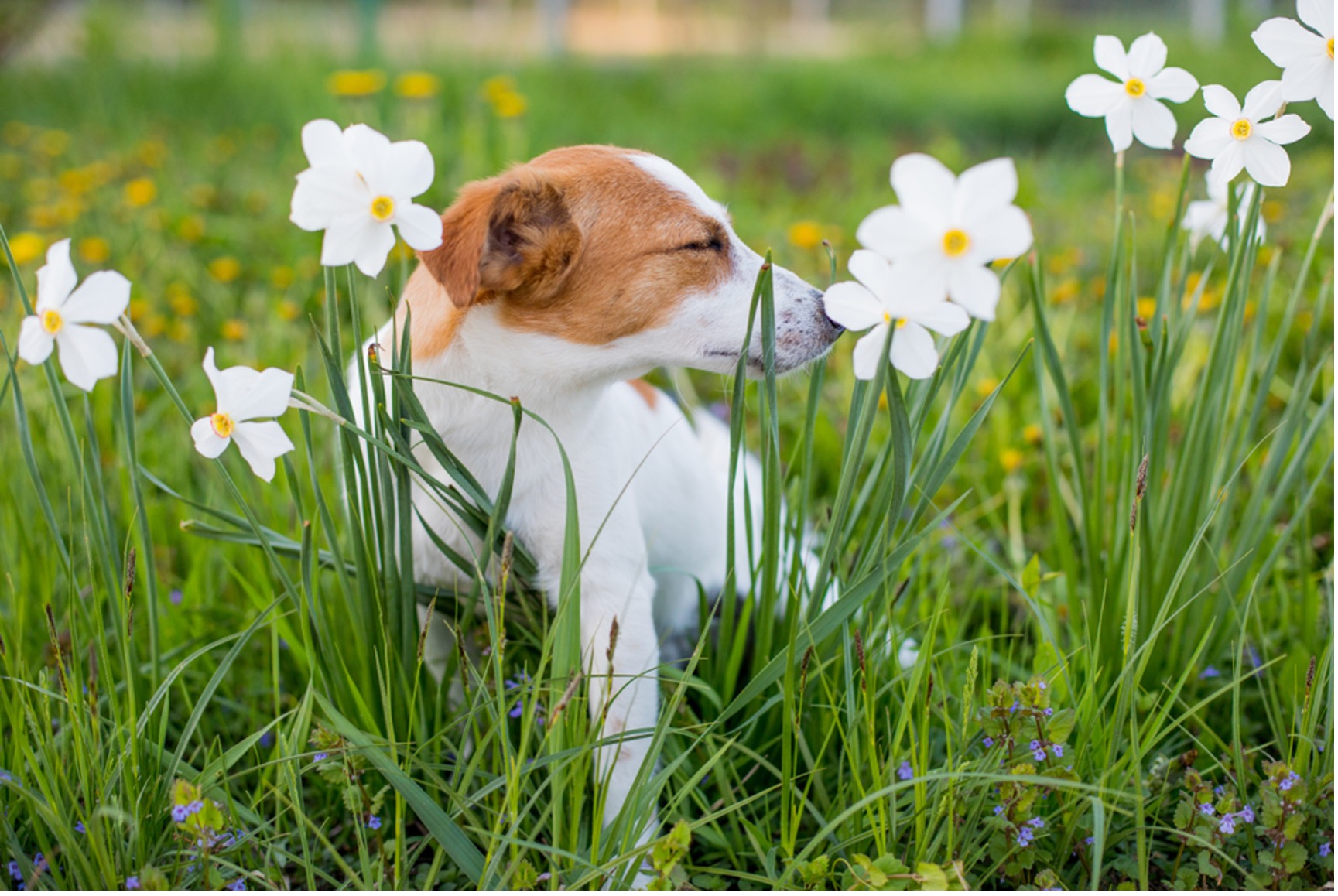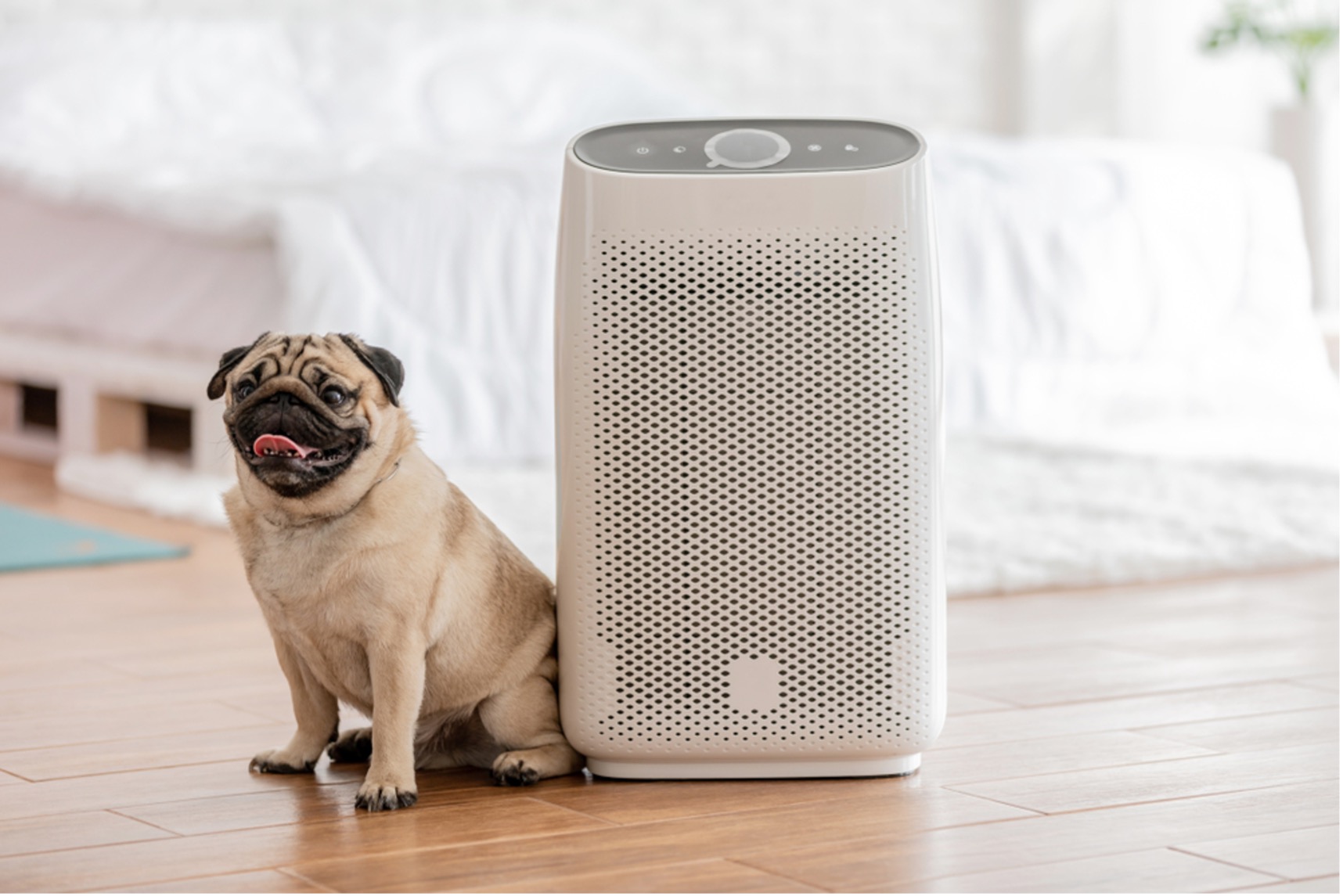Table of Contents
Did you know that dogs can get allergies just like humans can? It’s true! And just like humans, dog’s allergies tend to get worse in the spring when the pollen count goes way up. If you notice that your dog seems to be experiencing allergies, you don’t have to let them suffer in silence. There are plenty of practical steps that you can take to alleviate your dog’s springtime allergies. Here are nine tips for managing seasonal allergies in dogs:

Know the Signs of Allergies in Dogs
Dogs express allergies in similar ways to humans, but there are some differences, too. Most dogs express allergic reactions through their skin, so they will scratch, lick, chew, and bite at itchy areas, sometimes causing open wounds and hair loss. Some dogs will also have a runny and/or stuffy nose that causes sneezing, and their eyes may become swollen and/or produce mucus (which is what eye boogers are made of). If your dog is showing these signs, it’s likely they are suffering from seasonal allergies.
Bathe Them Frequently
Baths remove allergens from your pet’s skin, helping to alleviate allergies. Try to wash them once a week in lukewarm water, as hot water will dry and irritate their skin further. Choose a soothing oatmeal shampoo, or opt for a medicated one specially meant for pets with inflamed and sensitive skin. Gently pat off excess water with a soft towel or let them shake it off and air dry. Rubbing them vigorously will also contribute to skin irritation. If they dislike baths, be sure to reward them afterwards with plenty of healthy dog treats.Wipe Them Off After Outside Excursions
Dogs pick up allergens whenever they go outside, so it’s important to remove as many of them as possible before your dog comes inside. Take a damp wash rag or towel and gently wipe off their coats every time they go outside. You should also wipe off their paws or rinse them off with cool water since their feet are likely to pick up allergens. Make sure to do this gently, as roughly toweling them off can make their skin more itchy and irritated.

Limit Their Time Outside
Obviously, it’s impossible to keep your dog completely inside, but you can still limit their time outside on high pollen count days. Get a weather app that lets you see pollen alerts for each day so you can plan your activities accordingly. Figure out ways to burn off your dog’s energy inside, like playing fetch with toys, instead of taking long walks outside. When you are outside, try to keep your dog from rolling in the grass, rubbing up against trees, and other activities that increase their chances of picking up more allergens.
Wash Their Bedding Frequently
You should wash your dog’s bed, towels, and other fabric items at least once a week to get rid of any allergens they have accumulated. Be sure to choose a fragrance free detergent and fabric softener that are formulated for sensitive skin, as some dogs can be vulnerable to fragranced chemicals. Also be careful not to overdo it on the detergent or fabric softener, which can make fabric stiff and irritating on both your skin and the dog’s.
Clean the House, Especially the Floors
You should also clean your house weekly in order to cut down on the presence of allergens. Pay special attention to the floors and any furniture that your dog gets on, such as the couch or the bed. (If your dog sleeps on your bed, you should also wash your bedding once a week.) Be sure to use non-toxic cleaning products so that they will not irritate your dog or make them sick if they accidentally come into contact with any of the residue.

Filter the Air
If you have central heat and/or air conditioning, then you should replace the air filters every three months to prevent allergens from accidentally recirculating. If you are willing to go to the extra expense, you can also look into getting standalone air purifiers to further clean the area. Be sure to choose a unit that is properly sized to the room or house that you plan to use it for so that the air will be cleaned.
Revamp Your Dog's Diet
Eating a carb-heavy diet can worsen inflammation from the inside out, so it’s worth checking the carbohydrate content of your dog’s kibble and switching them to one with more protein if the carbs are too high. You might also want to give your dog’s immune system a boost by giving them supplements such as collagen chews for dogs, which will help promote skin health and a good coat. A weakened immune system can contribute to inflammation and sickness, which is why keeping your dog extra healthy overall is important during allergy season.Ask Your Vet About Medications
If none of these steps alleviate your dog’s allergies, then talk to your vet about what medications might be able to help. Certain over-the-counter allergy medications, such as Benadryl, are actually okay for dogs to take in small doses. There are also canine-specific medications available, including creams and sprays that can relieve itching topically, as well as injections that you can be trained to administer at home. Always talk to your doctor before giving your dog any medication for allergies, especially OTC medications originally designed for humans.
Watching your dog suffering from seasonal allergies can be hard, but the good news is that there are many different ways that you can manage their symptoms. Allergies can’t be cured, but you can make them a lot better for your dog by following these tips.
